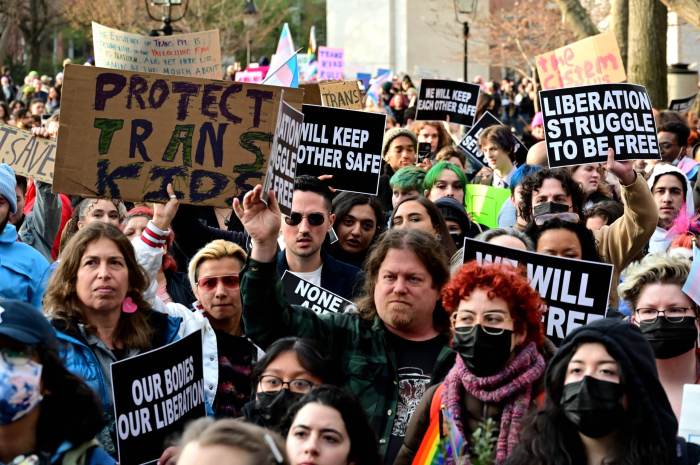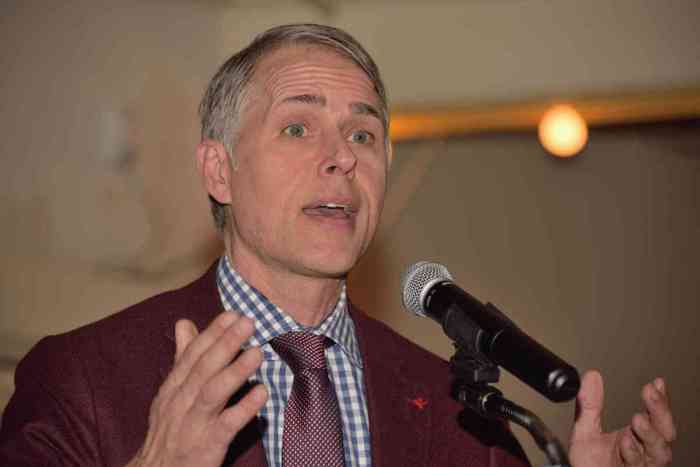We are entering a new presidential election year, and the mood in the country is sour. Among progressives, it has over and over been repeated that we are disappointed.
For those who invested high hopes in the transformative power of Barack Obama’s election, really, how could it be otherwise?
The unemployment rate remains stubbornly close to nine percent, that figure does not take account of some portion of the workforce that has stopped looking, and the uncertain debt crisis in Europe looms ominous on the global economic front.
Most of the benefits of a compromised health care reform law have not yet kicked in, while the Tea Party continues to make repeal a top priority.
And the simple imperative of requiring the wealthiest Americans to contribute a more equitable share to our common good — an idea that polls show overwhelming support for — remains unrealized.
In the LGBT community, the failure to pass even modest federal civil rights protections — covering employment nondiscrimination only — means Barney Frank will leave Congress after 32 years, 25 of them as an openly gay representative, without seeing that basic milestone reached.
And as marriage equality advances, leading Democrats nationwide — including Governor Andrew Cuomo, Maryland Governor Martin O’Malley, and New Jersey Senator Robert Menendez — step up to join the battle, while the president continues to speak only of his “evolution” on the issue.
But make no mistake, there is no palatable alternative to Obama’s reelection, and that goal will be difficult to ensure if key constituencies — including the LGBT community — choose to hang back or unduly focus on what has not yet been accomplished.
Among the Republican presidential contenders with a shot at winning the nomination, Mitt Romney is the least odious — but the bar is very, very, very low. In last week’s debate in Des Moines, confronted with his gay rights advocacy in the US Senate race he ran against Ted Kennedy in 1994, the former Massachusetts governor declared that he does not support discrimination against gay people.
But that’s a long way from his saying he would press for the languishing Employment Non-Discrimination Act (ENDA). Even Rick Santorum, the extremist ex-Pennsylvania senator who likened gay sex to bestiality when the Supreme Court decriminalized sodomy, piped up that he did not discriminate in his former Washington office.
Romney fought a ferocious effort to roll back equal marriage rights when he was governor, first proposing they be replaced by access to civil unions and later abandoning even that half-measure. Today, like his GOP opponents in the presidential race, Romney panders to the Christianist right in his party by demanding a federal constitutional amendment to extinguish the hard-won progress we’ve made in six states and the District of Columbia.
Newt Gingrich, the reckless former House speaker, gave hundreds of thousands of dollars last year to the successful effort to recall three Iowa Supreme Court justices who affirmed marriage equality there. This past weekend, he spun out of control, warning he would ignore judicial rulings he disagreed with and support enlisting federal marshals to drag judges before Congress.
Ron Paul, a libertarian whom Marriage Equality USA says supports repeal of the Defense of Marriage Act (DOMA), nonetheless has voiced no endorsement of any sort of partner recognition. In any event, even in a far right-wing field, he distinguishes himself with his unsuitability for the presidency.
Any measured review of the Obama record cannot ignore substantial advances for the LGBT community. The obvious ones are the end of Don’t Ask, Don’t Tell, the enactment of comprehensive hate crimes legislation, the elimination of the ban on entry into the US by HIV-positive foreigners, and the Justice Department’s decision to stop defending DOMA based on its conclusion that it is unconstitutional.
Other progress — less often cited — involves the administration’s use of its executive authority to incrementally level the playing field for our community. Any hospital receiving Medicare or Medicaid reimbursement — virtually every single one in the nation — must grant same-sex partners visitation rights as though they were legally family members. Efforts at the Department of Housing and Urban Development have taken aim at discrimination in federally financed or insured residential units. The State Department has moved to strengthen protections for same-sex couples in which one member serves abroad. Homeland Security is reassessing its deportation efforts in ways likely to benefit many binational same-sex couples struggling to stay in the US. And just this month, the president and Secretary of State Hillary Clinton outlined a sweeping effort at promoting LGBT rights abroad and opening up opportunities for asylum here.
The president’s refusal, to date, to voice support for equal marriage rights consistently grabs an enormous share of the chatter among grassroots activists and LGBT journalists and bloggers. In a post on the newyorker.com, Richard Socarides, an LGBT White House advisor in the Clinton White House, warning that Obama does not want to end up on the “wrong” side of history, argued that embracing marriage equality equals “smart politics.” Interestingly, he does not see the payoff primarily in terms of gay support — what Obama has achieved will be appreciated and we “understand and dread all of the Republican alternatives” — but rather in motivating other constituencies, including young voters and independents, both of whom strongly support the issue and are disenchanted on other fronts.
I share Socarides’ overall perspective — it’s the right thing for Obama to do, and on balance it is a net political plus — but want to caution against undue expectations of how the president should move forward and what his doing so would mean. Many pundits were angered when he appeared at a Manhattan gay fundraiser on the eve of the marriage equality vote in Albany and didn’t take a stand. With the vote hanging that night on winning one or two additional GOP senators, however, the president injecting himself into the debate would not have helped.
And, should we have a president who supports our full equality, it would have enormous symbolic force, but would not immediately alter the enormous tasks ahead of us in the courts, among both Republicans and Democrats in Congress and the state houses, and at the ballot box.
Meanwhile, there are plenty of other issues in Washington and before the president that we can put our shoulder to the wheel on with some hope of progress. Homeland Security needs to move more quickly and explicitly to remove the threat of deportation facing immigrant same-sex partners and spouses of Americans. AIDS must once again be a priority of ours, we must be vigilant in pressing for sufficient federal dollars to forestall shortfalls in AIDS Drug Assistance Programs that in the past several years have hit too many of our states, and advocates must push back against the restoration of the federal funding ban for syringe exchanges. On behalf of the youngest and most vulnerable in our community, we should build on nascent but promising efforts to protect students from bullying and provide woefully needed resources to house the homeless in safe and appropriate settings.
2012 is no time to let down our guard or be lulled into either complacency or glib cynicism.


































